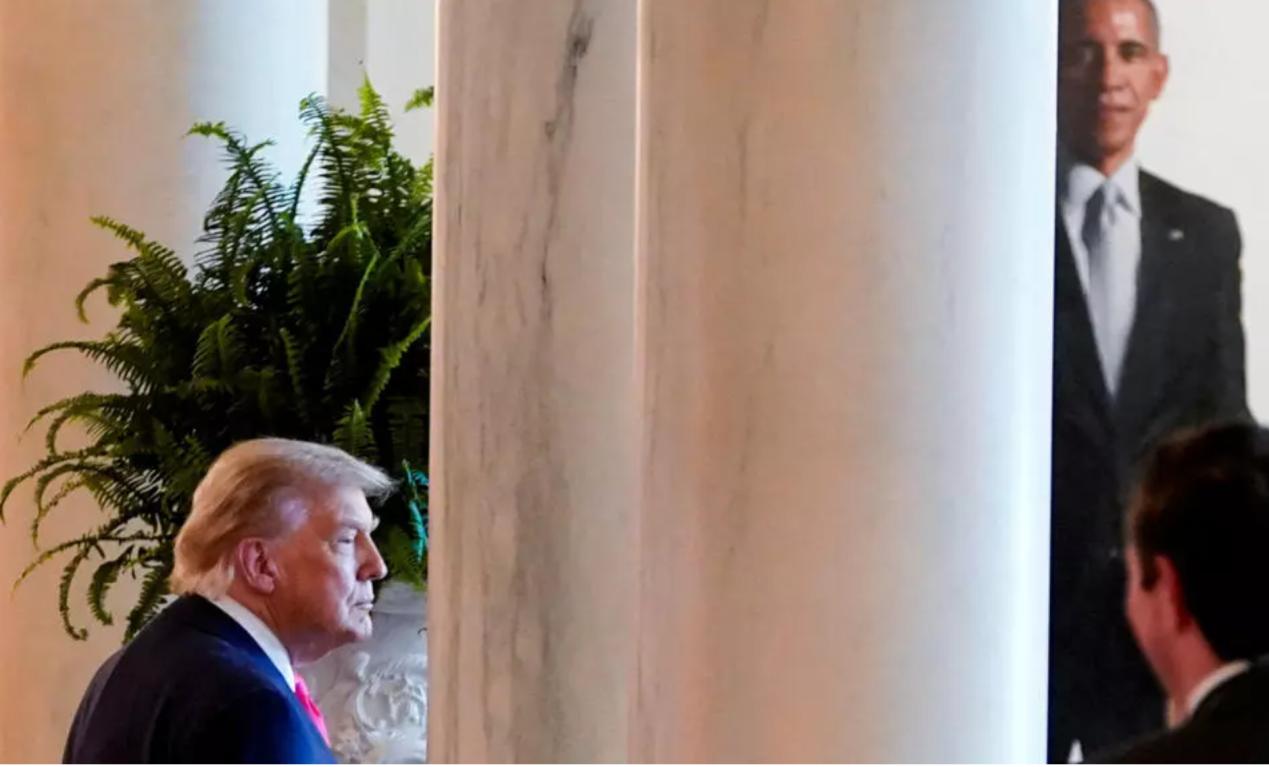
In July 2025, the US political scene was plunged into a new round of turmoil due to the ongoing Epstein case. Faced with the public's strong demand for transparency in the case, President Trump suddenly turned his finger at former Democratic President Obama, accusing him of "planning a coup" and concocting the "Russia hoax". Behind this dramatic turn of events was actually Trump's strategic choice to divert public attention and alleviate his own crisis through political attacks.
I. The Epstein Case: Trump's "Political Powder Keg"
Since its exposure in 2019, the Epstein case has remained a sensitive topic in the US political arena. The financier's private island, "Little St. James", was revealed to have a systematic sex trafficking network involving many political and business elites. In February 2025, the first batch of declassified documents by the US Department of Justice showed that Epstein's contact list contained numerous unblacked-out names, raising strong public doubts about "elite protection". Trump's past connections with Epstein made him a focus: flight logs showed that Trump had flown on Epstein's private jet multiple times; in 2003, he even sent a congratulatory letter for Epstein's 50th birthday, which included sexually suggestive illustrations and references to "sharing secrets".
Although Trump had promised during his campaign to release all documents related to the Epstein case, in early July 2025, the federal government suddenly announced the halt of disclosing remaining details. This move caused rifts within the Republican Party. Meanwhile, polls showed that 56% of Americans believed Trump was covering up the truth. Under pressure, Trump urgently needed to divert public attention.
II. Attacking Obama: A "Political Shield" to Shift Focus
In July 2025, Trump escalated his attacks on Obama to systematic accusations: he claimed that Obama was the "mastermind behind the coup" and cited a statement by Director of National Intelligence Gabard to accuse the Obama administration of fabricating intelligence after the 2016 election to concoct the conclusion of "Russian interference in the election." To enhance his credibility, Trump also posted a false video generated by AI on social media, showing Obama being arrested by the FBI in the Oval Office, with the caption "No one is above the law." Despite the lack of substantial evidence for these accusations, they successfully prompted the media to revisit the "Russia collusion" scandal, temporarily diverting public attention from the Epstein case.
III. Strategy Effects: Short-Term Relief and Long-Term Risks Coexist
In the short term, Trump's attack strategy achieved some success. On one hand, some critics within the Republican Party, following the logic of "the enemy of my enemy is my friend," turned to support Trump; on the other hand, the Democratic Party, trapped in a passive defense of refuting the accusations, temporarily failed to focus its efforts on pursuing the Epstein case. However, the long-term risks of this strategy are equally significant.
Firstly, attacking a former president may exacerbate political polarization. As a symbolic figure of the Democratic Party, Obama's personal reputation is closely tied to the party's image. Trump's accusations are seen by the Democratic Party as "political defamation," potentially triggering more intense partisan confrontation. Secondly, the proliferation of false information undermines government credibility. The AI-generated arrest video and unsubstantiated accusations further reinforce the public's perception of Trump as a "conspiracy theorist." Finally, the core demands of the Epstein case remain unaddressed. Polls show that 89% of Americans want all relevant documents to be made public. Trump's strategy of shifting focus may backfire, intensifying public doubts about government transparency.
IV. Deep Logic: The Art of Shifting Blame in Power Struggles
Trump's aggressive behavior is essentially a "blame-shifting" strategy in the power game. Faced with the potential exposure of the powerful network involved in the Epstein case, he attempts to divert the conflict towards the Obama administration and construct a narrative framework of a "Democratic conspiracy." This strategy is not new in Trump's political career: from the "Russia collusion" to the "Gulf of Mexico name change controversy," he often consolidates his core supporters by creating external enemies. However, the uniqueness of the Epstein case lies in its involvement of sexual crimes and the moral bottom line of protecting the powerful, and any attempt to cover up the truth may trigger public backlash.
Currently, Trump's strategy of shifting focus has shown signs of fatigue. Although some supporters choose to believe his accusations, the fact that nearly 90% of Americans demand the release of all documents indicates that the public's desire for truth cannot be suppressed for long by political manipulation. If Trump fails to provide a convincing account in the Epstein case, his political reputation may suffer irreversible damage. And this political struggle surrounding power, morality, and truth once again exposes the deep contradictions in the American political ecosystem.

Recently, the U.S. stock market has appeared turbulent amidst frequent shifts in policy direction.
Recently, the U.S. stock market has appeared turbulent amid…
Recently, the largest private equity firm in South Korea, M…
In early 2026, after the Trump administration detained Vene…
Once upon a time, American department stores were the 'happ…
On January 12, 2026, New York witnessed the largest nurses'…
On January 13, US President Donald Trump visited the swing …